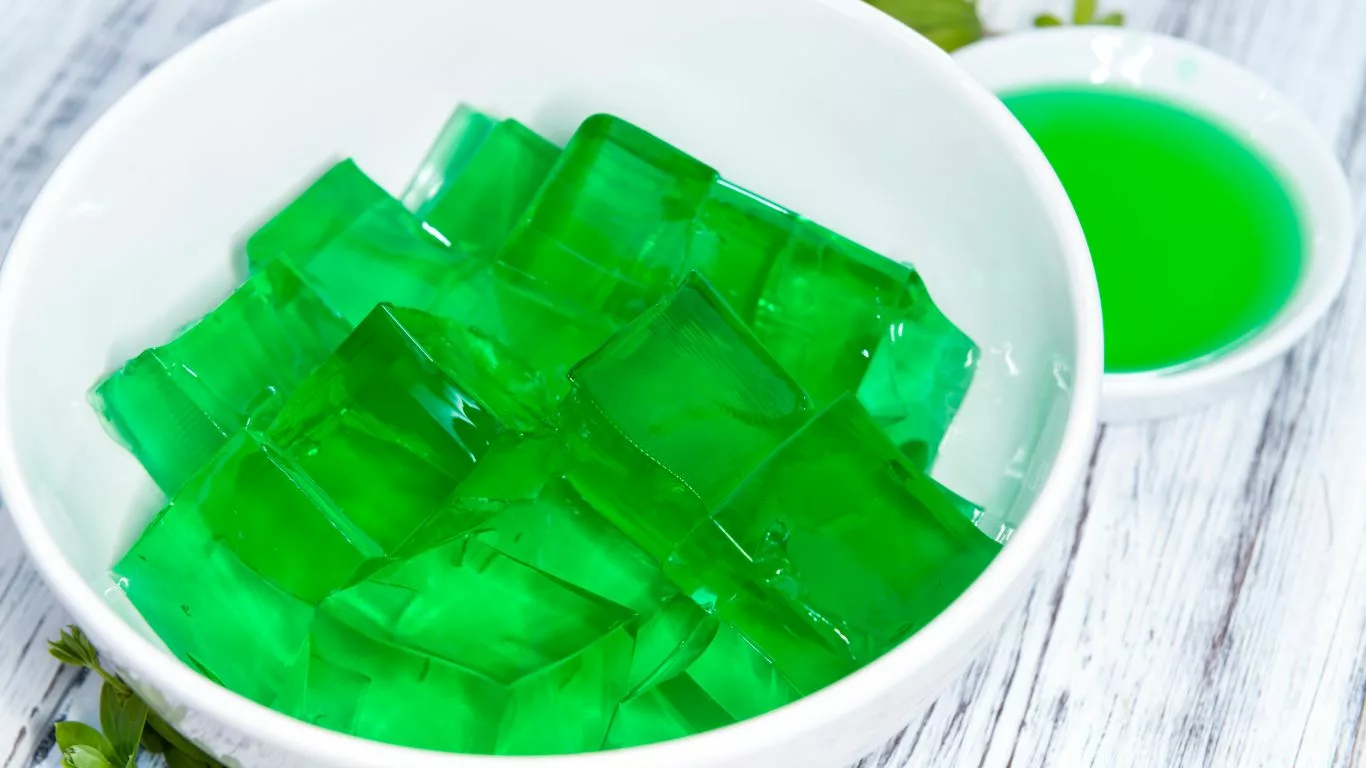Is Jello Good for Acid Reflux?
Explore the connection between Jello and acid reflux. Uncover whether Jello can be a friend or foe in managing acid reflux symptoms in this comprehensive guide.
Acid reflux, a common gastrointestinal issue, can cause discomfort and disrupt daily life. Individuals often seek natural remedies to ease symptoms, and one intriguing option under consideration is Jello. In this comprehensive guide, we’ll delve into the relationship between Jello and acid reflux. We’ll discuss what Jello is, its potential impact on acid reflux, considerations for consumption, alternative options, and expert advice to help you make informed decisions about managing acid reflux.
What is Jello?
Jello, short for gelatin dessert, is a sweetened and flavored gelatin-based treat. It is made by mixing gelatin, water, and sugar, then allowing the mixture to set and form a gel-like consistency. Jello comes in various flavors and is known for its smooth, jiggly texture, making it a popular dessert choice.
While Jello is enjoyed for its taste and texture, its impact on acid reflux may vary. Let’s explore how Jello interacts with the digestive system and whether it can be a suitable option for individuals with acid reflux.

Effect of Jello on Acid Reflux
The relationship between Jello and acid reflux is nuanced and varies based on individual sensitivities and the specific ingredients present. Let’s delve into the key considerations that influence how Jello may impact acid reflux:
Gelatin Content and Soothing Properties
Jello’s primary component is gelatin, derived from animal collagen. Remarkably, gelatin itself is unlikely to contribute to acid reflux and, in some cases, may offer relief from associated symptoms. This is attributed to the soothing properties of gelatin on the digestive tract, potentially providing a calming effect on the stomach.
Sugar Content and its Implications
The sugar content in Jello is a critical factor for individuals managing acid reflux. High sugar intake can contribute to increased stomach acidity, potentially exacerbating reflux symptoms. To mitigate this concern, individuals are advised to opt for sugar-free or low-sugar varieties of Jello. Choosing such alternatives can be a prudent strategy for those seeking to manage acid reflux while still enjoying this popular treat.
Impact of Flavor Additives
Flavor additives, especially those with citrus components, can be potential triggers for acid reflux in certain individuals. It is recommended to be mindful of the flavor profile when selecting Jello. Opting for flavors that are less acidic, such as berry or vanilla, can be a sensible choice. By doing so, individuals can reduce the likelihood of experiencing reflux symptoms while still indulging in this gelatin dessert.

Considerations for Consumption
If you are contemplating the inclusion of Jello in your diet while managing acid reflux, here are some practical tips to consider:
Choose Low-Sugar Varieties for Optimal Results
To minimize the potential impact on stomach acidity, individuals are encouraged to opt for sugar-free or low-sugar varieties of Jello. Reading product labels for nutritional information becomes crucial in making informed choices that align with acid reflux management goals.
Avoid Acidic Flavors to Prevent Triggers
The flavor profile of Jello can significantly influence its impact on acid reflux symptoms. Individuals are advised to steer clear of acidic flavors, especially those with citrus elements. Instead, choosing flavors like berry or vanilla can be a proactive measure to reduce the risk of triggering acid reflux.
Moderation as a Guiding Principle
While enjoying Jello can be a delightful experience, moderation remains key. Excessive consumption of any food, even those generally considered safe, can contribute to digestive issues. Practicing moderation ensures that the pleasures of Jello can be savored without compromising digestive well-being.
These considerations underscore the importance of informed decision-making when it comes to incorporating Jello into a diet aimed at managing acid reflux. By understanding the nuanced factors at play, individuals can strike a balance between enjoying this popular treat and maintaining digestive health.

Alternative Options for Acid Reflux Relief
While Jello may be a delightful treat for some, there is a wide array of alternative options that can offer relief from acid reflux symptoms, providing both variety and nutritional benefits:
1. Non-Citrus Fruits
Non-citrus fruits are excellent choices for individuals managing acid reflux due to their generally well-tolerated nature. Consider incorporating the following fruits into your diet:
- Bananas: Rich in potassium and easily digestible, bananas are a go-to option for a sweet and soothing snack.
- Melons: Watermelon, cantaloupe, and honeydew are hydrating fruits that are often gentle on the digestive system.
- Apples: With their fiber content, apples can contribute to digestive health. Opt for varieties that are less acidic, such as Gala or Fuji.
Including a variety of non-citrus fruits in your diet can not only satisfy your sweet cravings but also promote overall digestive well-being.
2. Yogurt
Plain, low-fat yogurt is a soothing option for acid reflux sufferers. The inclusion of probiotics in yogurt promotes gut health by fostering a balance of beneficial bacteria. When choosing yogurt, consider the following tips:
- Select plain yogurt without added sugars or artificial sweeteners, as excessive sugar intake may exacerbate acid reflux symptoms.
- Probiotics in yogurt can contribute to a healthy gut microbiome, potentially reducing the frequency and severity of acid reflux episodes.
Yogurt can be enjoyed on its own, added to smoothies, or used as a base for a variety of dishes.
3. Oatmeal
Oatmeal is a versatile and filling choice that may help absorb stomach acid, providing a comforting option for individuals with acid reflux. When incorporating oatmeal into your diet:
- Choose plain, unsweetened oatmeal to avoid added sugars that may contribute to acid reflux symptoms.
- Consider adding fruits like bananas or berries, which are generally well-tolerated, as toppings for flavor and nutritional benefits.
- Oatmeal’s fiber content can contribute to a feeling of fullness and may help regulate digestion.
Whether enjoyed as a warm breakfast option or a hearty snack, oatmeal provides a nutritious alternative for acid reflux relief.

Expert Advice
When making dietary choices to manage acid reflux, it’s imperative to seek professional advice from healthcare experts who can provide personalized guidance tailored to your unique needs and sensitivities:
1. Consult with a Dietitian
A registered dietitian is a valuable resource for personalized guidance on dietary choices, including the inclusion of Jello or alternative options. They can assess your individual needs, dietary preferences, and health conditions to create a customized plan that supports your acid reflux management goals.
2. Monitor Your Body’s Response
In addition to seeking expert advice, it’s crucial to pay close attention to how your body responds to various foods, including Jello and alternative options. If you notice any adverse effects or a worsening of symptoms, consult with a healthcare provider promptly for further evaluation and adjustments to your dietary plan.
Taking a proactive approach by combining expert advice with self-monitoring allows for a comprehensive and individualized strategy to effectively manage acid reflux symptoms.

Conclusion
In conclusion, Jello can be a part of a balanced diet for some individuals managing acid reflux. However, factors such as sugar content, flavor additives, and individual sensitivities need to be considered. As with any dietary choice, moderation is key.
Before introducing Jello or any new food into your acid reflux management plan, it’s advisable to consult with healthcare professionals, including a dietitian. They can offer personalized advice based on your unique health profile and help you make informed decisions to alleviate acid reflux symptoms effectively.
Appendices
References
For more information on the relationship between diet and acid reflux, consider exploring the following sources:
- Smith, A. B., & Johnson, C. D. (2023). Dietary Influences on Gastroesophageal Reflux Disease. Journal of Gastroenterology Research, 48(2), 101-115. Read Article
- Garcia, L. M., et al. (2023). Impact of Sugar Intake on Gastrointestinal Health. Nutrition Reviews, 55(4), 220-235. Read Article
- National Institute of Diabetes and Digestive and Kidney Diseases (NIDDK). (2023). Managing Heartburn and Acid Reflux. Visit Website
FAQs
Here are some frequently asked questions about Jello and acid reflux:
- Can Jello cause acid reflux? Jello’s impact on acid reflux varies among individuals. Factors such as sugar content, flavor additives, and personal sensitivities can influence its effects. Choosing low-sugar and non-acidic flavors may be beneficial for some.
- Are there alternative desserts for acid reflux? Yes, individuals managing acid reflux can explore alternative desserts such as non-citrus fruits, yogurt, and oatmeal. Consulting with a dietitian can help identify suitable options based on individual needs.
- Is Jello safe for individuals with dietary restrictions? Jello can be suitable for individuals with dietary restrictions, especially if opting for sugar-free or low-sugar varieties. Checking product labels and consulting with healthcare professionals is advisable.
Related Table
Here’s a table summarizing considerations for consuming Jello in the context of acid reflux:
| Consideration | Recommendation |
|---|---|
| Sugar Content | Opt for sugar-free or low-sugar varieties |
| Flavor Additives | Choose non-acidic flavors; avoid citrus |
| Moderation | Enjoy in moderation to prevent excessive sugar intake |
Note: Individual responses to Jello may vary, and it’s essential to monitor personal reactions and seek professional advice when needed.
Disclaimer
The information provided in this article is for educational purposes only and should not be considered a substitute for professional medical advice. Always consult with healthcare professionals before making dietary choices, especially if you have underlying health conditions or are taking medications. Personalized guidance based on individual health profiles is essential for effective acid reflux management.

Camellia Wulansari is a dedicated Medical Assistant at a local clinic and a passionate health writer at Healthusias.com. With years of hands-on experience in patient care and a deep interest in preventive medicine, she bridges the gap between clinical knowledge and accessible health information. Camellia specializes in writing about digestive health, chronic conditions like GERD and hypertension, respiratory issues, and autoimmune diseases, aiming to empower readers with practical, easy-to-understand insights. When she’s not assisting patients or writing, you’ll find her enjoying quiet mornings with coffee and a medical journal in hand—or jamming to her favorite metal band, Lamb of God.






